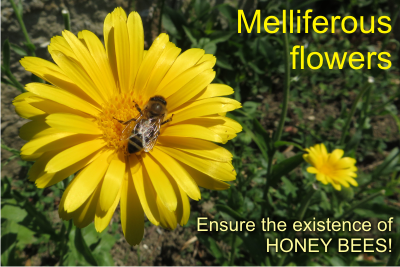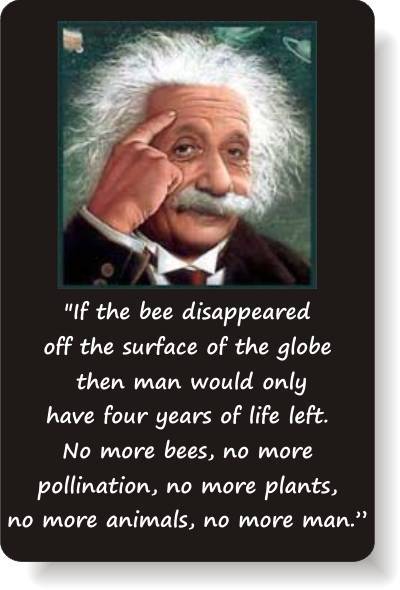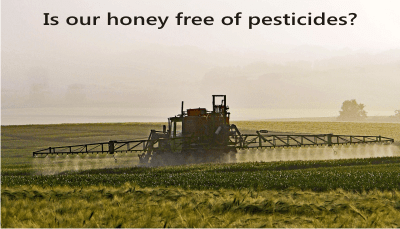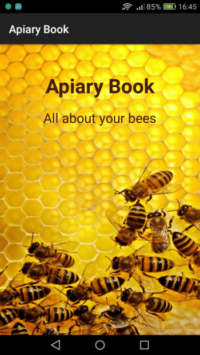With more and more technology beekeeping is getting easier. Beginners have increased their number a lot this year but somehow we don’t have more honey.
We are told the bees disappear. Despite the fact that conventional medicine has begun to recognize the good benefits of honey consumption. Or maybe, because of it?
We have more beekeeping beginners though we still hear about colony collapse disorder and less and less honey bees.
Would that mean that the damage we bring to the bees is that big that it cannot cover the increased number of beekeepers? That our efforts to maintain a balance are failing to succeed because nothing surpasses the toxicity we pour on flowers to feed our never-ending greed?
Yes, this can be a possible answer. But we still have to salute the initiative of people for becoming beekeepers.
Why do people chose to become beekeepers?
1. Because honey is more and more recognized as a healthy product, because there is an increased awareness of the advantages of a healthy nutrition, and mostly, because all these have lead to higher honey prices.
The most representative for this is the famous manuka honey, which has even lead to whole new plantations of the manuka tree in Australia, to produce the honey.
The debate for the brand “manuka honey” still continues between New Zealand (the country that studied the product intensely and spread the good results worldwide, while producing and selling good quality honey) and Australia (a country which also hosts the tree, but hasn’t got that involved in advertising the honey and its producers are not that notorious.)
2. Because in the context of harsh economies people have lost their jobs and have been left without means of support. It is very well-known the case of Greece, which experienced an increase in number of young people embracing this job. Beekeeping is a self-employed job and thus more attractive and easier to do. (read more on the types of honey found in Greece)
3. Because science today offers easy-to-use equipment that has made this job easier and less dangerous.
This is exactly what happened after launching the Flow Hive – the hive that doesn’t need to be opened to extract the honey.
“The blame” of inventing such a revolutionary product belongs to Cedar Anderson and his father Stuart, at Byron Bay in northern New South Wales, Australia. In February 2015 they raised $16 million through a crowdfunding campaign and launch a global business.
To quote them “Now we’ve shipped 48,000 Flow Hives to 130 different countries.” And this happened despite the fact that the hives are not very cheap. One costs almost US $700.
Stuart Anderson said “more than half of the hives had been sold to novice beekeepers, many of them women. Most of the hives are going to the US, although Australia is a close second to that.” he said.
What’s special about the Flow Hive?
The hives allows honey to be extracted without opening the hive. This means less stings, 🙂 and a more efficient and profitable money management.
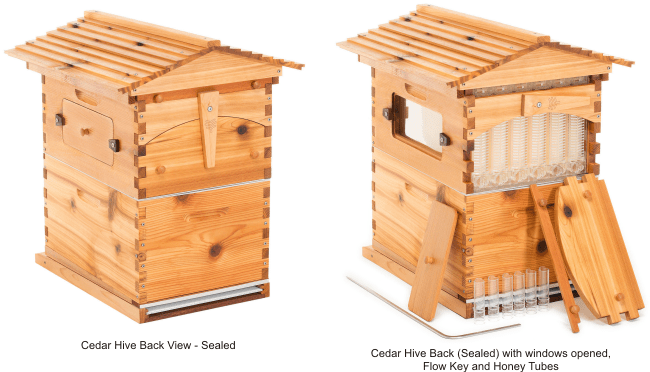
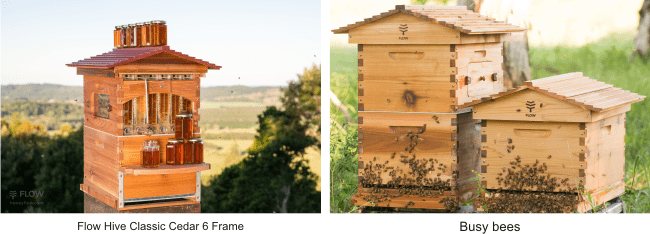

for other types of beehives, please read the article Short review of different kinds of bee hives and Pictures of bee hives
Here is how this product influenced the number of beekeepers in Australia:
- Beekeepers clubs have up to a 200 % increase in memberships.
- New beekeepers clubs have started up.
- Some old clubs have limited the number of their members.
- There are 20,801 registered beekeepers in Australia, managing 647,000 hives.
- Gold Coast Amateur Beekeepers Society president Kathy Knox said her club trained 85 new keepers this year, with many of them being quite young. Compared to other years, this is a very high figure.
Yet, beekeepers should be aware that beside the way honey is collected, the basic hive design and the basic principles of disease management and bee husbandry haven’t really changed.
And for this reason, beekeepers are advised to take training courses, to register in specialized clubs and associations, to join forums, to read books and mind the Cedar Anderson team’s words:
“Beekeeping is a labor of love. As with all animal husbandry, it’s a pastime which requires knowledge, skill and dedication and which carries with it inherent risks. Sooner or later, all beekeepers get stung. Some people have severe allergies to bee stings, so please be aware of the potential hazards, when considering whether beekeeping is right for you.”
Mr Weatherhead says disease was and still is an ever present danger. There are concerns that some keepers are not properly monitoring for diseases such as American Fowlbrood.
“That is a possibility if they’re sitting out there and not looked after then they become a biosecurity threat and could spread disease — that’s why we recommend they go and join the local bee club,” he said. – learning is always the key to knowledge.
Beekeepers need to thoroughly understand all the enemies of bees. The most dreadful are pesticides, lack of nutrition and diseases. Beekeeping really is not an easy job. The harvest depends a lot on your skills but also on whether conditions and quality of plants.
In a study published in December in “Proceedings of the Royal Society B”, Simone Tosi, James Nieh and their colleagues have studied how honey bees reacted to exposure to some neonicotinoids such as clotianidine and thiamethoxam (pesticides largely used in agriculture) along with limited nutrient sources – a combination commonly found in agricultural areas. (read more on neonicotinoids)
“Our results provide the first demonstration that these stressors can synergistically interact and cause significant harm to animal survival.” There was a bee death increase by 50%.
“Combined exposure to pesticide and poor nutrition decreased their health. Bees use sugar to fuel their flights and work inside the nest. Pesticides decreased their hemolymph (“bee blood”) sugar levels and therefore decreased their energy stores.”
Pesticides + poor food = 50% more bee deaths
Beware of all these when you first start the job of beekeeping. Read as much as you can.
And for a start, you can try the flow hive or a traditional hive. Amazon can offer any type you want!
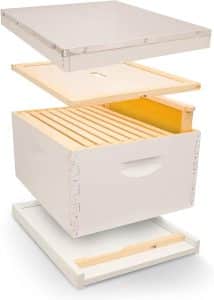
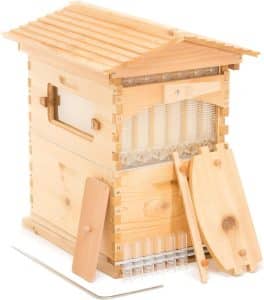


Help nature and honey bees and through a handful of meliferous seeds on the ground. Read this article to see what bees like: Save the bees and plant some melliferous flowers, aka honey plants!
In the end, a big salute for a wonderful family that had initiative and enough trust in people around the world as to start a crowdfunding and revolutionize beekeeping. Here they are:
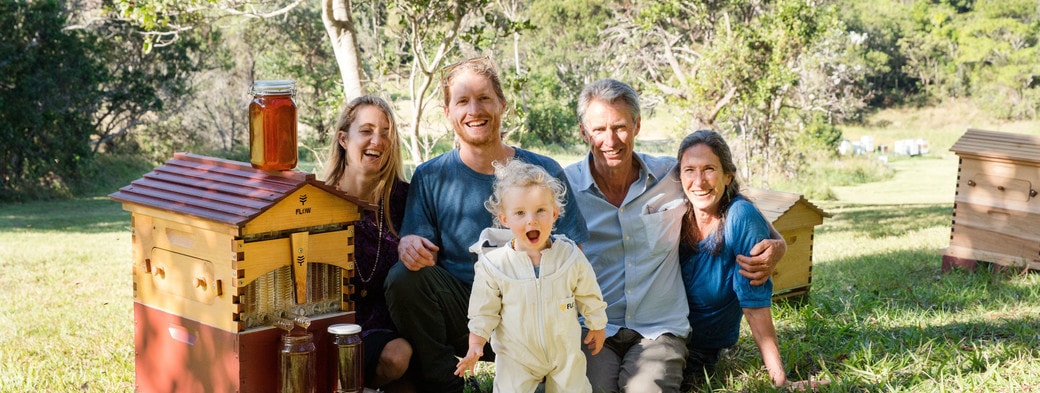
==========
References:
http://www.radioaustralia.net.au/international/2017-12-27/beekeeping-booms-but-clubs-fear-hive-health-may-suffer/1725940
Picture credits and references https://www.honeyflow.com/

